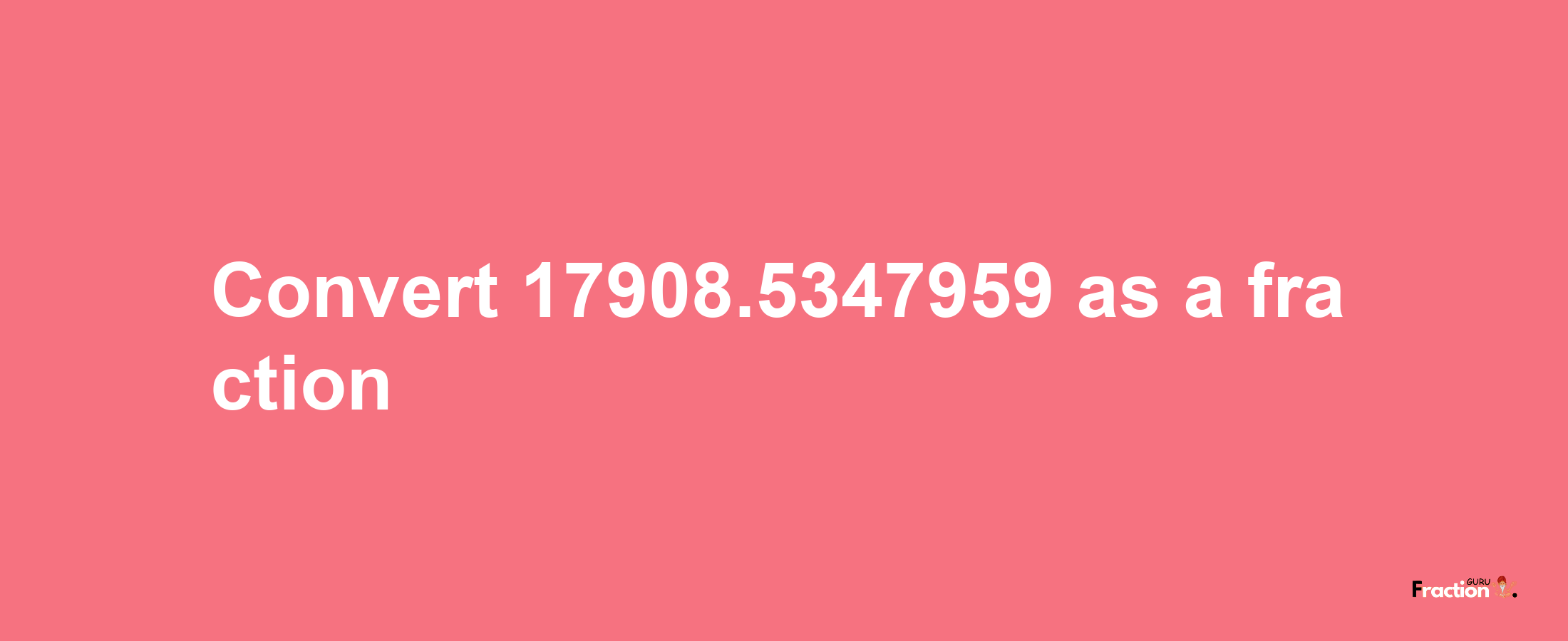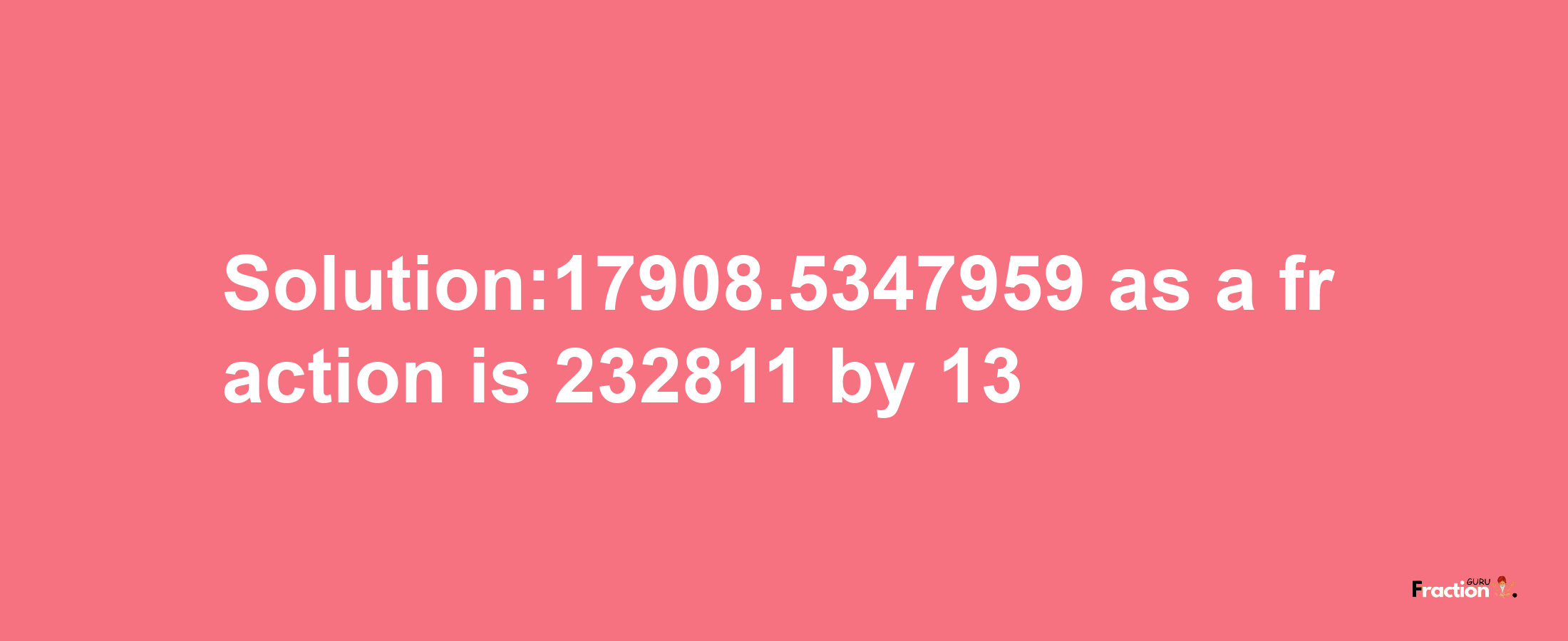Step 1:
The first step to converting 17908.5347959 to a fraction is to re-write 17908.5347959 in the form p/q where p and q are both positive integers. To start with, 17908.5347959 can be written as simply 17908.5347959/1 to technically be written as a fraction.
Step 2:
Next, we will count the number of fractional digits after the decimal point in 17908.5347959, which in this case is 7. For however many digits after the decimal point there are, we will multiply the numerator and denominator of 17908.5347959/1 each by 10 to the power of that many digits. So, in this case, we will multiply the numerator and denominator of 17908.5347959/1 each by 10000000:
Step 3:
Now the last step is to simplify the fraction (if possible) by finding similar factors and cancelling them out, which leads to the following answer for 17908.5347959 as a fraction:
232811/13 / 1


